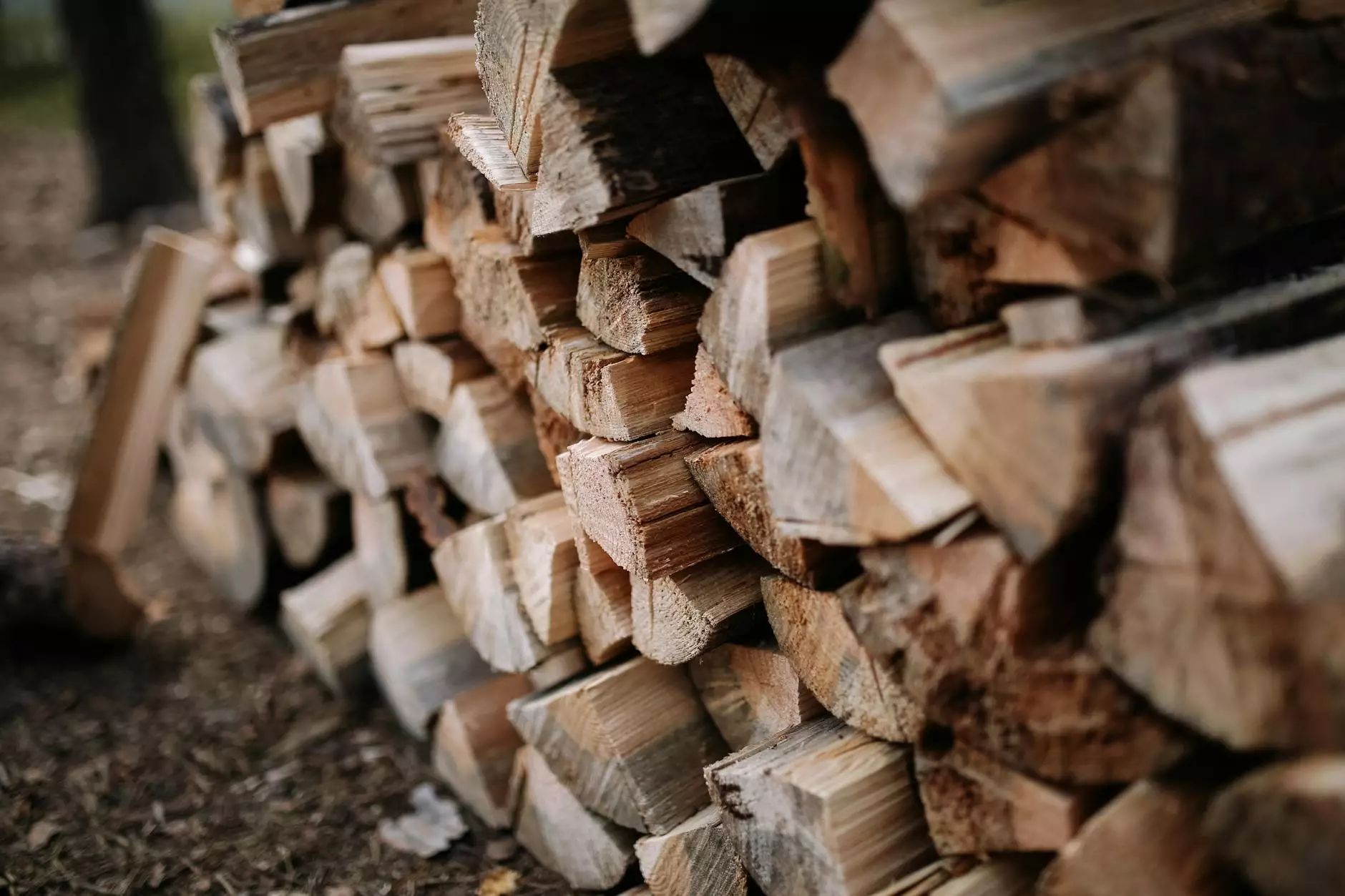The Ultimate Guide to Firewood for Your Business

When it comes to running a successful business that relies on heat, ambiance, or cooking, the choice of firewood can significantly impact your operations. It’s not just about burning wood; it’s about selecting the right type to meet your specific needs. In this comprehensive guide, we will explore various aspects of firewood, ensuring that you have all the information necessary to make informed decisions.
What is Firewood?
Firewood is wood that is cut and prepared for burning in stoves, fireplaces, or outdoor fires. It has been used for centuries as a crucial energy source for heat, cooking, and even as a social gathering point. In modern times, firewood has maintained its importance, especially for businesses in the hospitality, culinary, and construction sectors.
Types of Firewood and Their Characteristics
Understanding the different types of firewood is essential in selecting the best option for your needs. Firewood can generally be categorized by species, moisture content, and whether it is hardwood or softwood. Here are some of the most common types:
- Hardwoods: These woods come from deciduous trees and are known for their density and high heat output. Common hardwoods include oak, hickory, and maple.
- Softwoods: Sourced from coniferous trees, softwoods like pine and cedar ignite quickly and burn faster but typically have a lower heat output compared to hardwoods.
- Specialty Woods: Some businesses prefer specific types of firewood for unique flavors in cooking, such as fruitwoods like apple or cherry, which can impart distinct tastes to smoked or grilled foods.
Choosing the Right Firewood for Your Business
Selecting the right firewood is more than just picking a type. Several factors should influence your choice:
1. Purpose of Use
Consider what you will primarily use the firewood for. If you are managing a restaurant with a wood-fired oven, hardwoods that provide longer, consistent heat are essential. For a cozy fireplace in a lodge, softer woods that ignite quickly may be adequate.
2. Moisture Content
The moisture content of firewood is crucial for efficient burning. Firewood should ideally have a moisture content of less than 20%. Wood that is too wet will produce excess smoke and low heat, resulting in inefficient burning and potentially harmful creosote build-up in chimneys.
3. Availability and Supply
It's vital to choose a firewood supplier who can consistently meet your demand. Look for businesses that offer a reliable delivery schedule and high-quality wood. Check reviews and testimonials to gauge their reputation.
Benefits of Using High-Quality Firewood
Using top-notch firewood can lead to numerous benefits:
- Increased Efficiency: High-quality firewood burns hotter and longer, meaning you’ll need less wood to generate the same amount of heat.
- Improved Flavor: For cooking applications, quality firewood enhances flavors, turning ordinary meals into extraordinary experiences.
- Reduced Maintenance: Quality wood produces less smoke and creosote, leading to easier maintenance of fireplaces and chimneys.
- Environmental Impact: Sustainable sourcing of firewood supports eco-friendly practices and reduces your business’s carbon footprint.
How to Store Firewood Properly
Proper storage of firewood is essential to maintain its quality. Here are some tips to consider:
1. Dry and Elevated Storage
Store firewood in a dry area off the ground. Elevating wood on a rack helps avoid moisture from the soil.
2. Covering
If possible, cover the top of your firewood stack with a tarp or plastic to shield it from rain and snow while allowing air circulation around the sides.
3. Rotate Stock
Use older wood first to ensure that you are burning the driest wood available and maintaining a fresh supply. This practice also helps prevent wood from cracking or deteriorating.
Finding the Right Supplier: Wood-Trans.com
When it comes to sourcing firewood, wood-trans.com stands out as a premier supplier. They specialize in a variety of firewood types and provide a commitment to quality and customer satisfaction. Here's what they offer:
- Wide Selection: A diverse range of firewood options tailored for various needs, including cooking, heating, and ambiance.
- Quality Assurance: Thoroughly seasoned wood with guaranteed moisture content, ensuring efficient burning and minimal smoke.
- Delivery Services: Reliable and timely delivery to make stocking your business easy and hassle-free.
Cost Considerations for Firewood
The cost of firewood can vary based on several factors, including:
- Type of Wood: Different hardwood and softwood varieties have varying costs based on availability and demand.
- Quantity: Bulk purchasing generally reduces the per-unit price, making it cost-efficient for businesses with regular heating or cooking needs.
- Location: Transport costs can influence prices, especially for businesses located far from suppliers.
Conclusion
Understanding firewood and how to select, store, and use it effectively can enhance your business operations significantly. High-quality firewood not only improves heating efficiency and flavor but also supports sustainable practices. By choosing a reputable supplier like wood-trans.com, you can ensure that you’re getting the best products available to keep your operations running smoothly. With the right knowledge and resources, your business can thrive, creating an inviting and warm atmosphere for your guests and customers.
https://wood-trans.com/








